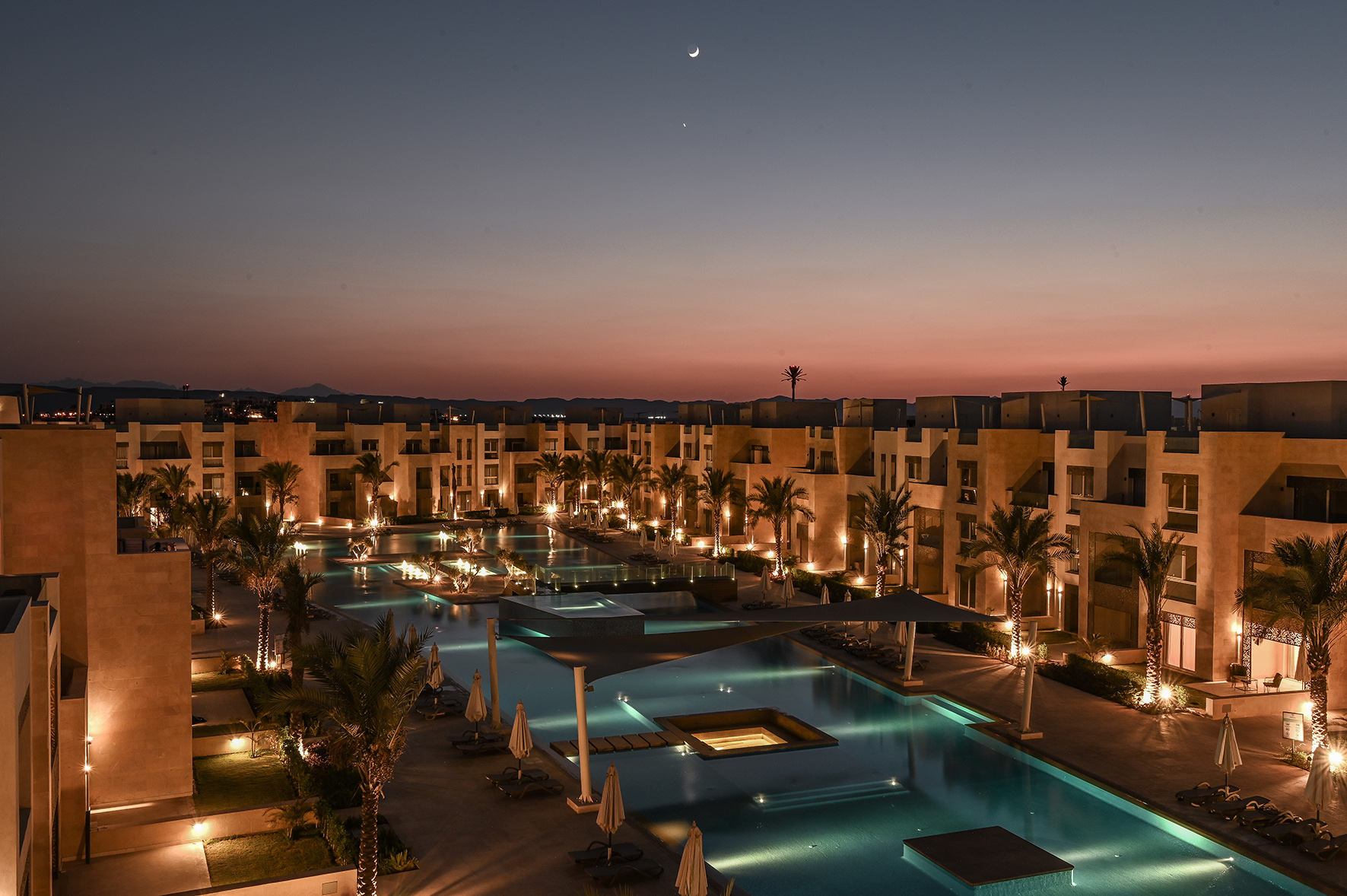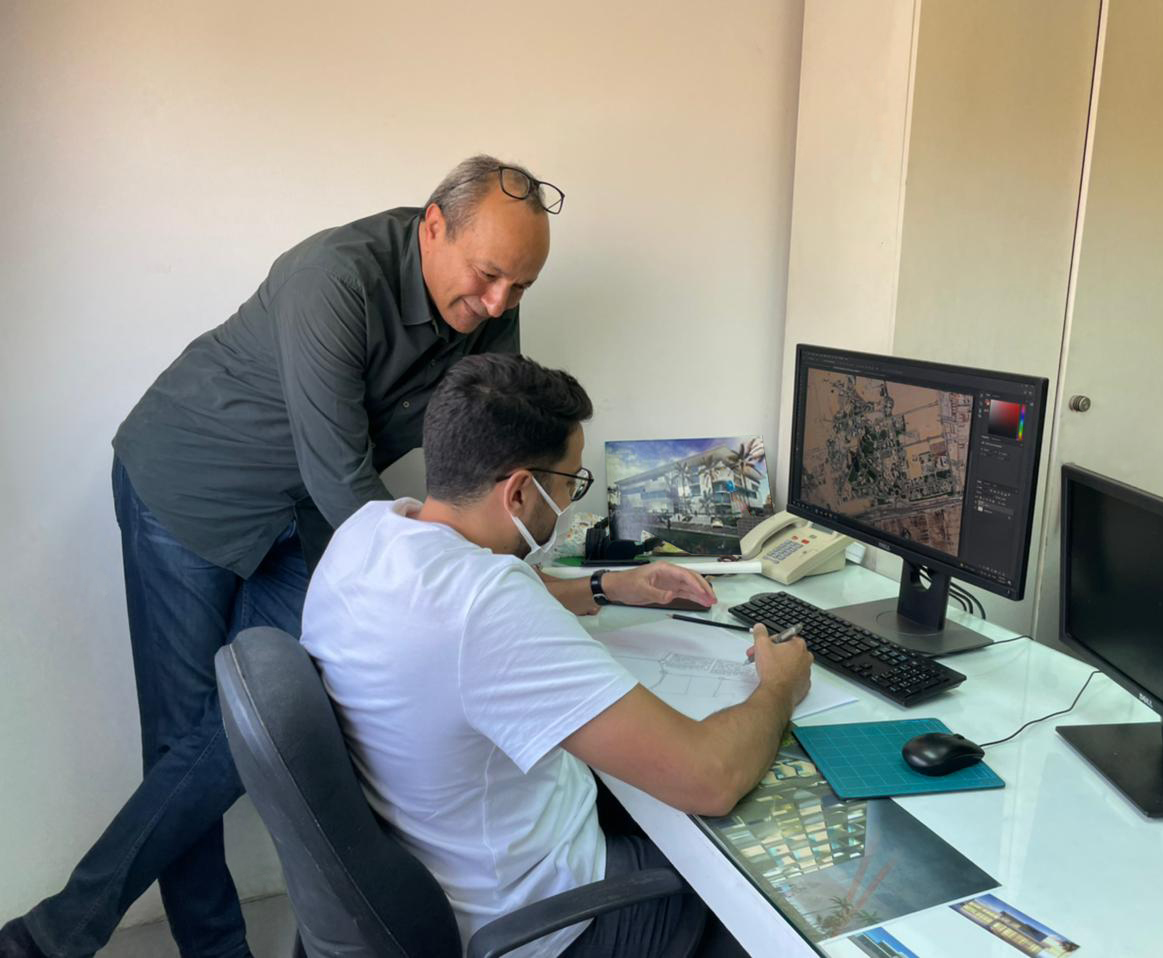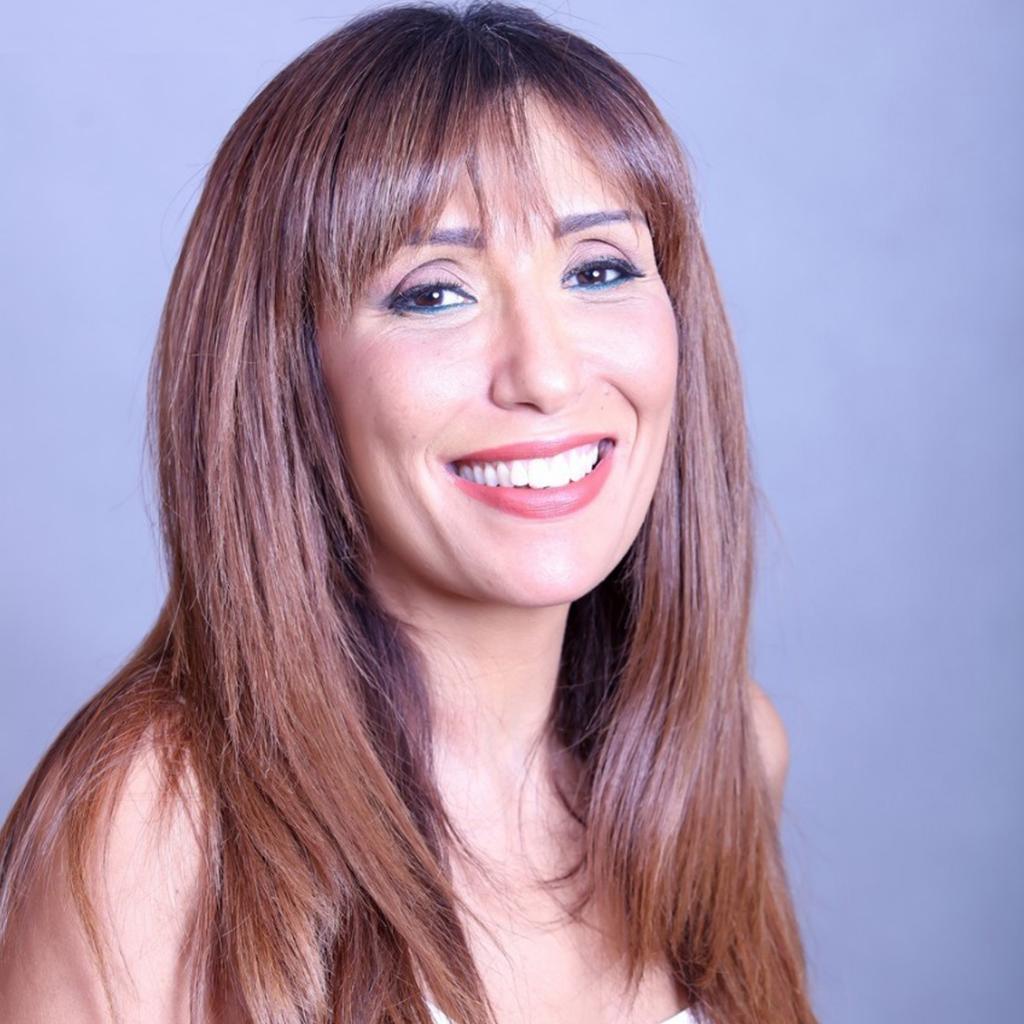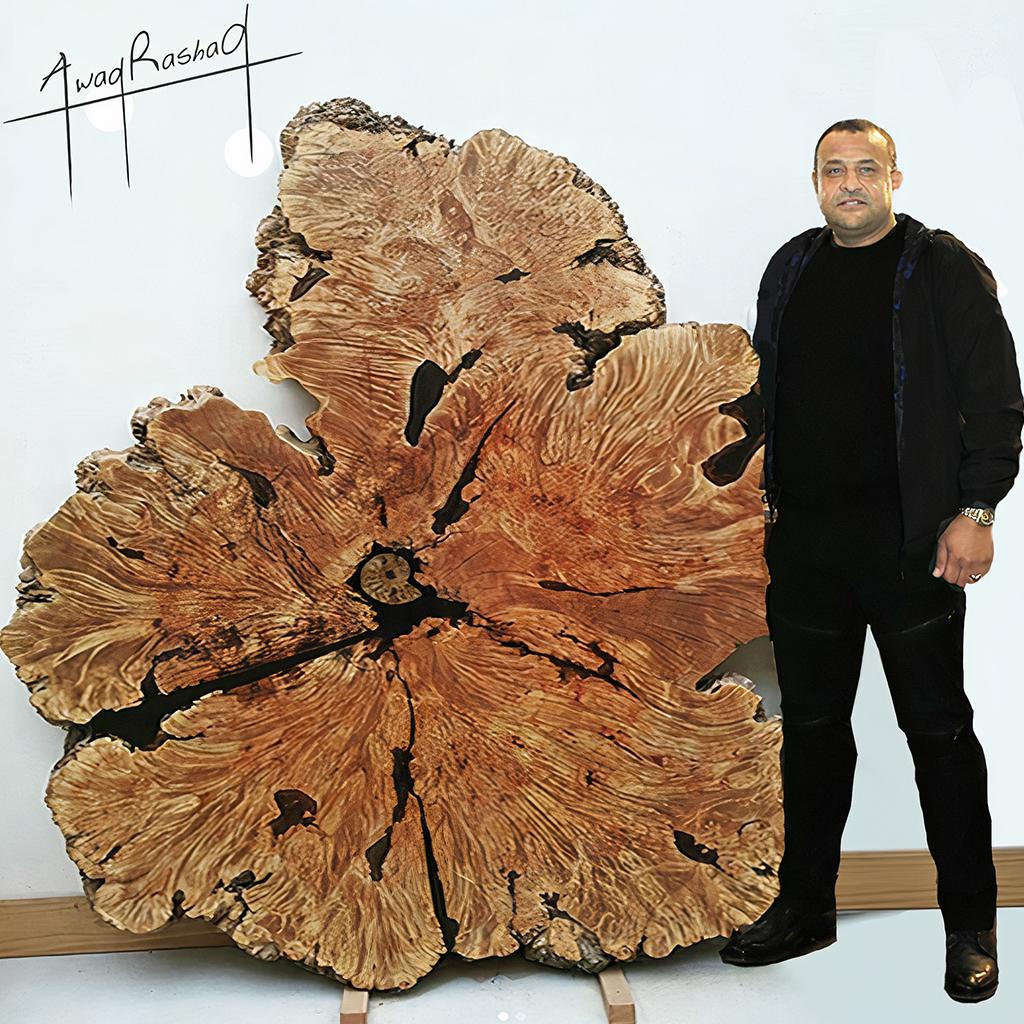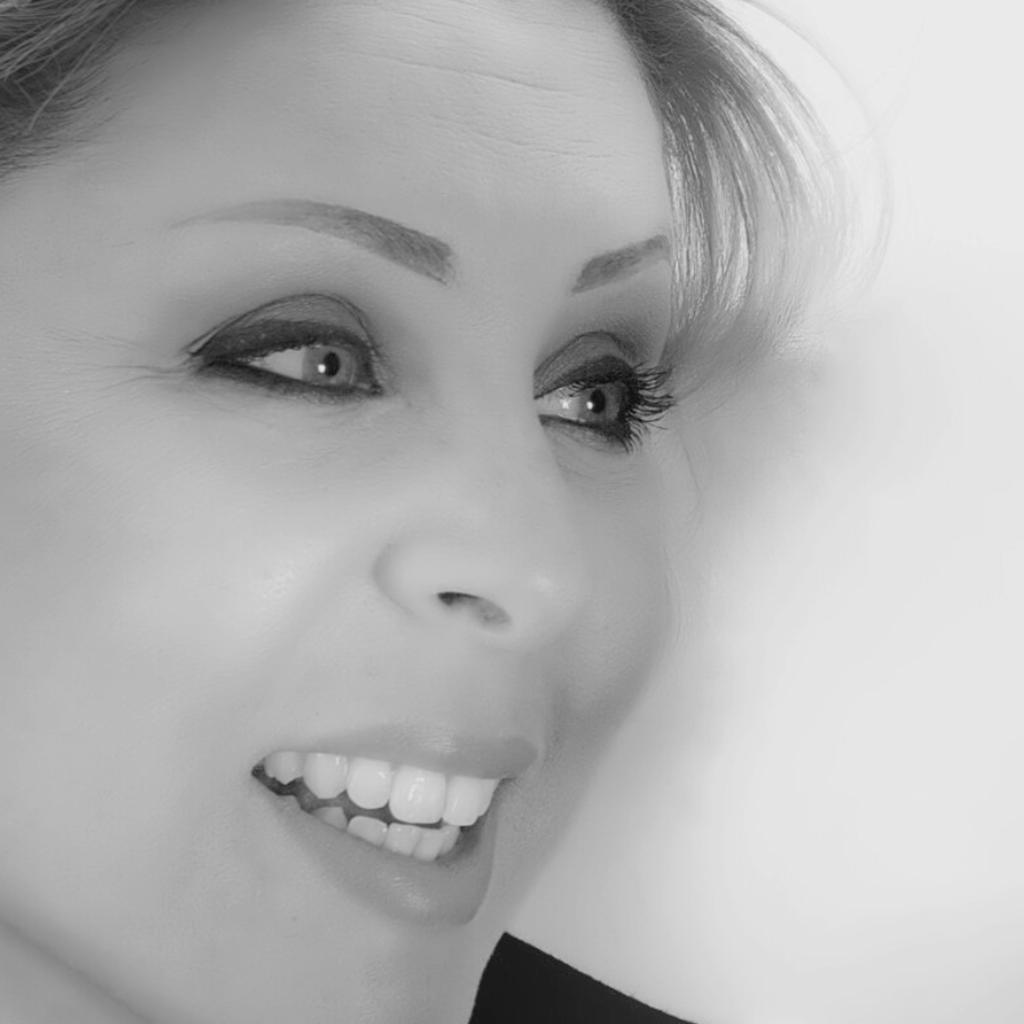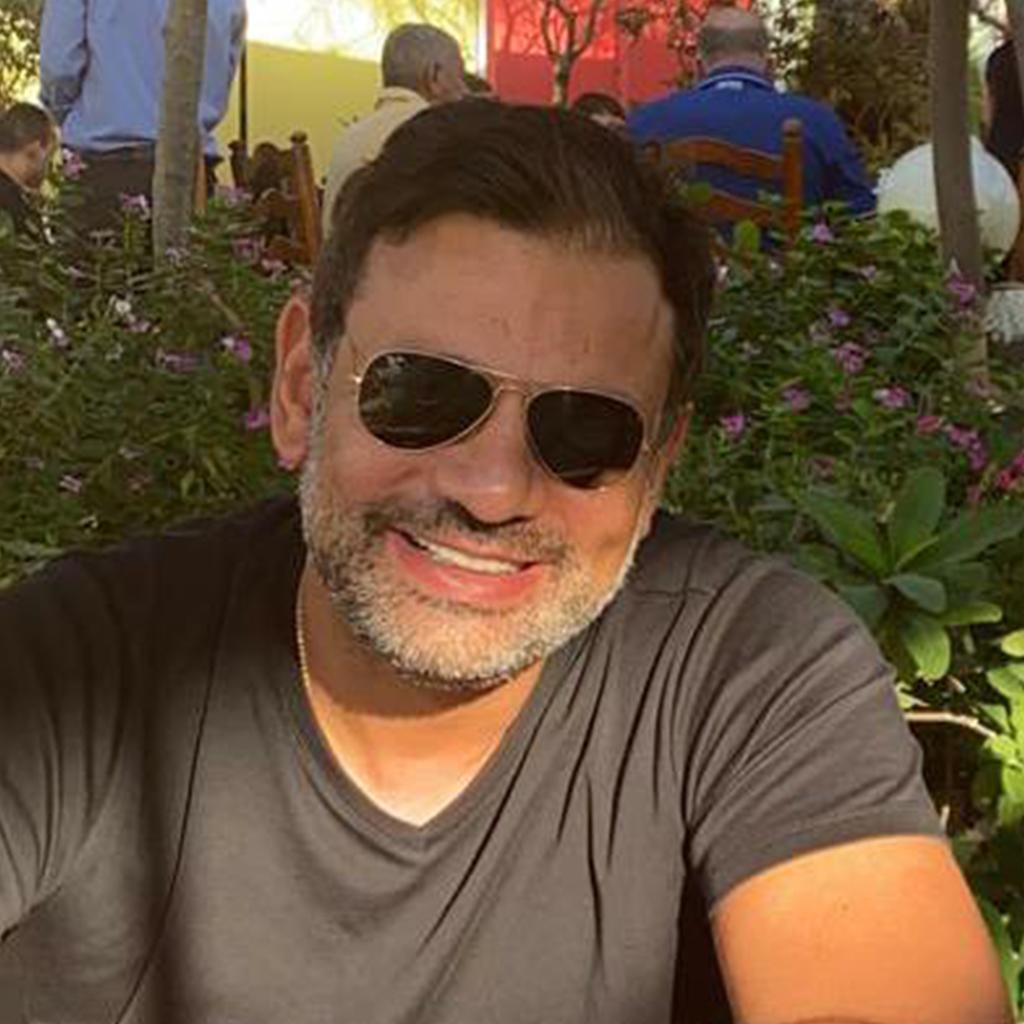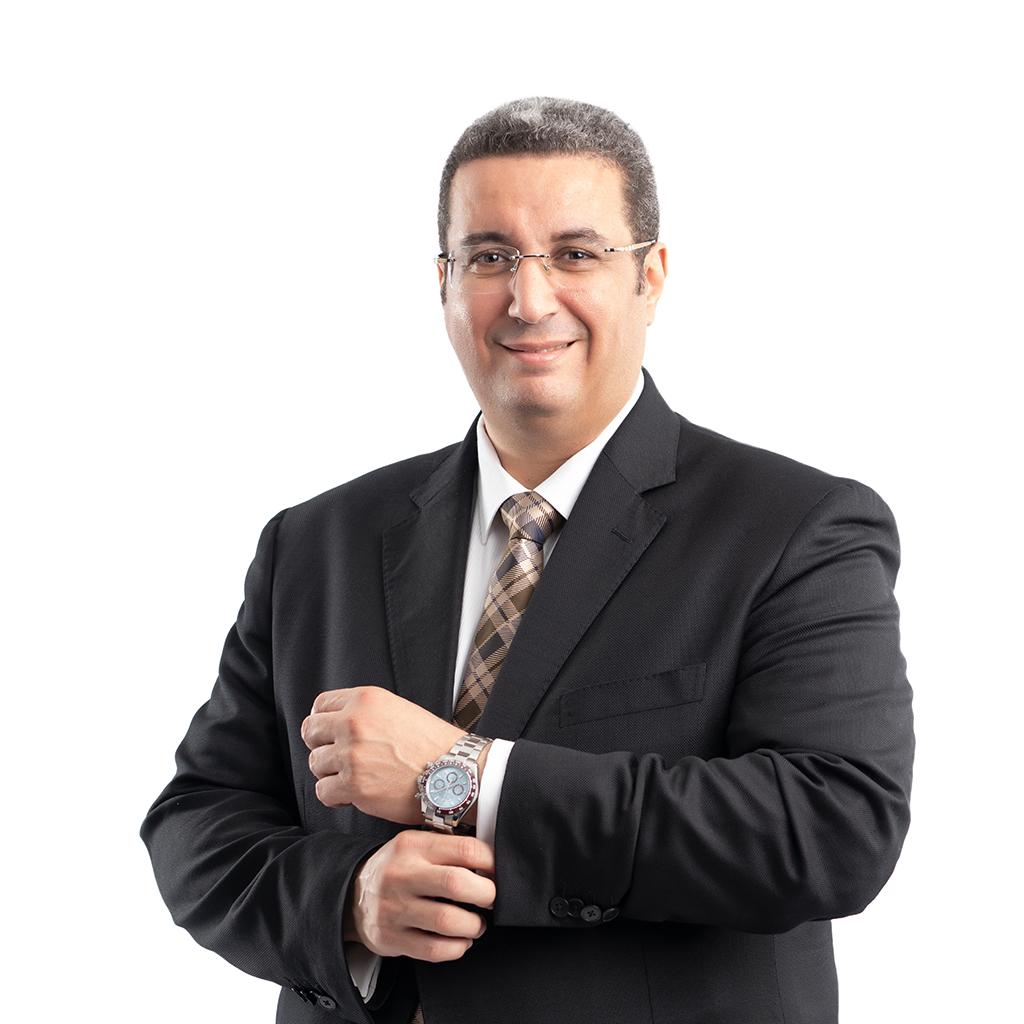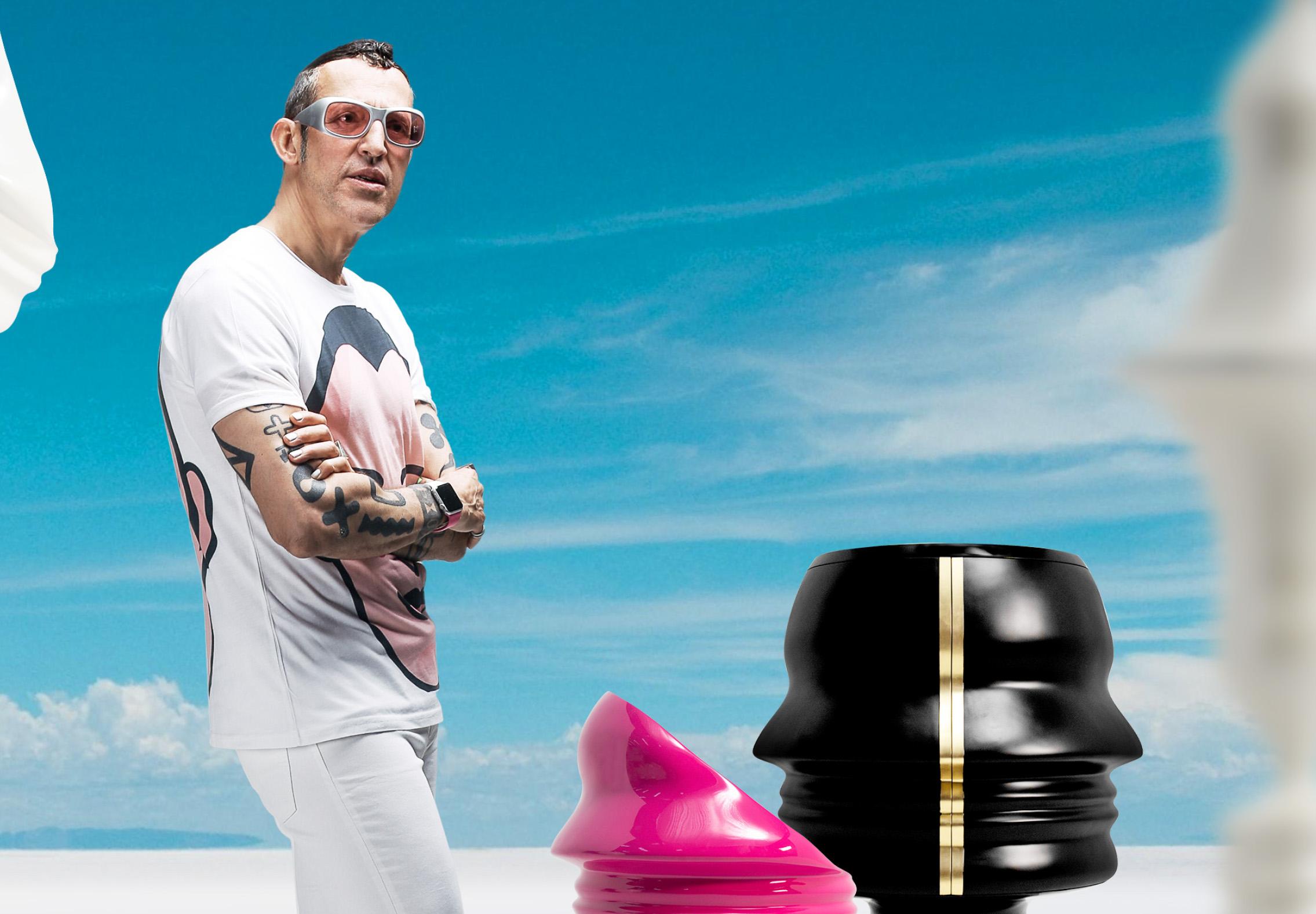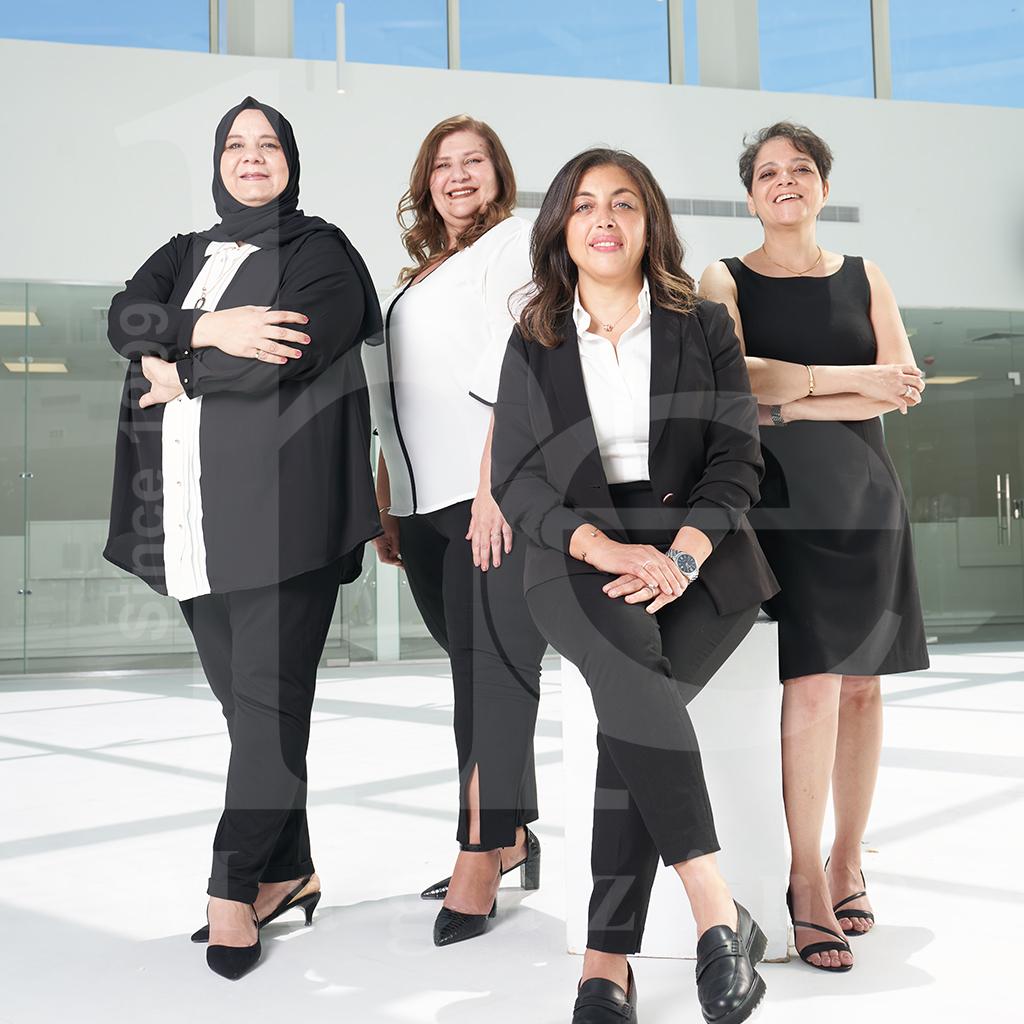
Written by: Perihan El Etreby
Date: 2021-09-01
It is the mixture of the love of art, interest in math, and appreciation of different cultures that led toa career in architecture…
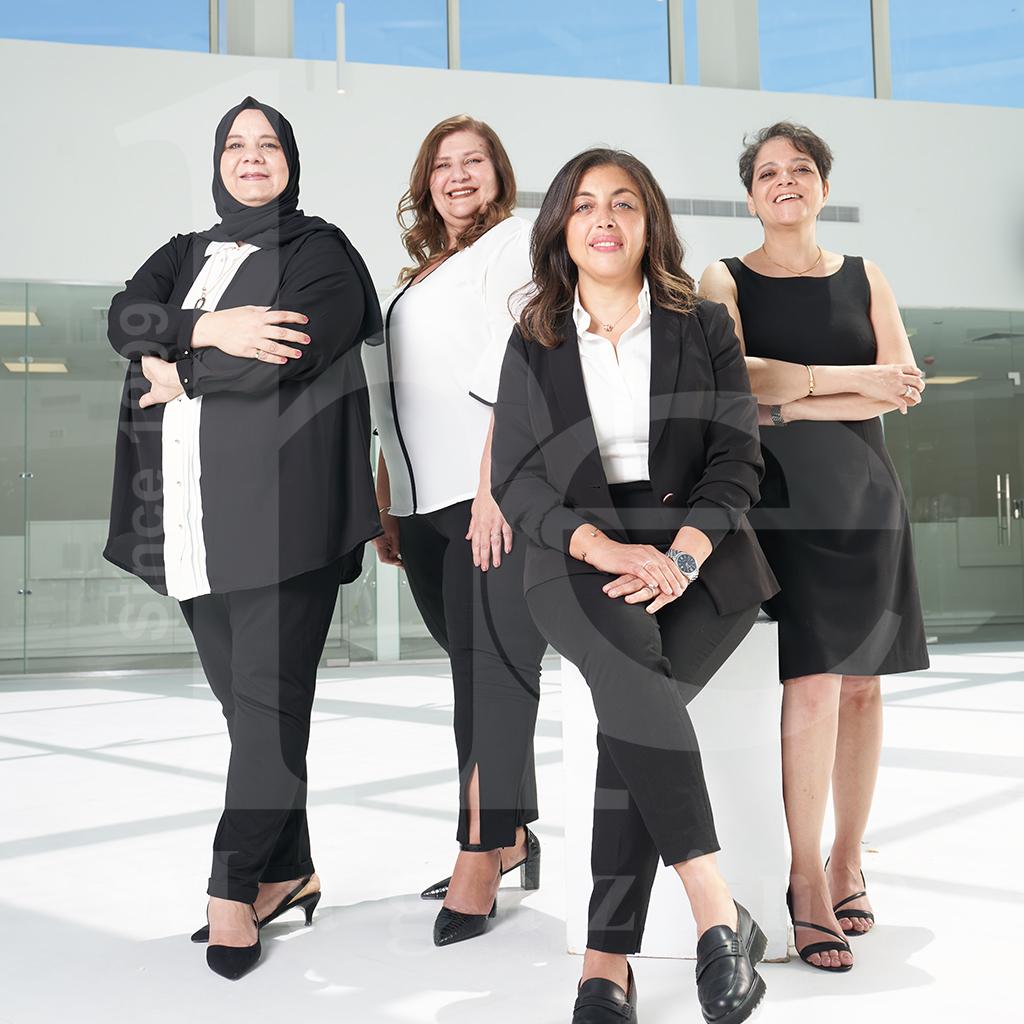
"Contemporary architecture is always related to the region…… When it is original, it can become global…… “Contemporary” is also related to younger generations…… And all this is what Ökoplan aims for!!"
Prof. Dr. Tamer Elkhorazaty
Ökoplan is a multi-discipline architectural firm, originally founded in Stuttgart, Germany in 1990, by Dr. Tamer Elkhorazaty and Dipl.-Ing. Said Sorour. In 1993, another office was established in Cairo, at a time when Egypt was seeing a boom in the real estate sector, especially with the planning of new cities within the Greater Cairo Region. This—in turn— offered Ökoplan multiple business opportunities, covering a variety of project scales. Over the years, the firm has been growing and has now become a leading engineering consultancy firm, with a long history of successful projects inside and outside Egypt. More than ten years ago, the firm expanded by adding Ökoplan Landscaping, thus, gaining the long experience of Dr. Tarek Sobhy in the field. Furthermore, in 2015, Ökoplan has become part of 5+UDC Urban Development Consortium, comprising five renowned architectural design firms, thus, combining their long expertise and joining forces on significant projects, such as the planning of the New Administrative Capital.
Ökoplan delivers innovative and cost-effective solutions to meet and exceed clients´ needs through focused and responsive teamwork. With more than 200 engineers, the scope of services covers a variety of specialties: city planning, master planning, urban design, landscape design, architectural design, interior design, and structural engineering. Annually, they develop many projects, starting from conceptual design to construction drawings and tender documents, in addition to site supervision and construction management.
We had the utmost pleasure to interview the new generation at the top of Ökoplan’s management, Arch. Manal El-Koussy, M.Sc. Arch. Natalie Henain, Arch. Lamiaa El-Hawary and Dr.-Ing. Rowaida Rashed: together they lead the contemporary designs dominating the new architectural language at Ökoplan.

Dr.-Ing. Rowaida Rashed
 M.Sc. Arch. Natalie Henain
M.Sc. Arch. Natalie Henain

Arch. Manal El-Koussy

Arch. Lamiaa El-Hawary
The most interesting part about this interview is the harmony between the four architects that was evolving throughout the conversation. They shared with us their journey, their achievements, challenges, visions, and how Ökoplan developed throughout the years, as well as the future aspirations they would like to achieve.
It is the mixture of the love of art, interest in math, and appreciation of different cultures that led to a career in architecture…
We started by asking them why they studied architecture
“I had a family friend who used to give me very detailed comments about my drawings when I was a child,” Natalie said, “and growing up in a family interested in the field of mathematics, I learned from my dad the application of logic in the different aspects of life. On the other side, my mom—who is Russian— was very much interested in architecture, and we used to travel a lot to see the different trends and explore different cultures. So, subconsciously, everything merged at the end, linking art, culture, math, and architecture altogether.”
Manal agreed with Natalie, mentioning that usually talent is spotted in early childhood through the child’s interest in art and drawing. Later, it becomes more evident during university years. “I had to choose between joining the Department of Architecture at the Faculty of Fine Arts or that at the Faculty of Engineering,” Manal said. “But I always had a thing for mathematics, so I went for engineering. And my love for historical places also pushed me towards this career. Egypt’s rich history encourages any art enthusiast to seek a career in architecture… and I was one of them.”
Rowaida agreed with her colleagues’ opinions, “traveling had a huge impact on my love for architecture and art in general. Discovering our country’s rich history, exploring different cultures around the world and being immersed in a family that appreciates art and music, have all increased my passion that kept on growing with me until I made a choice to pursue a career in architecture.”
As for Lamiaa, she mentioned that her choice for architecture was derived from a very different motive; “My choice wasn’t made based on my interactions with the family, neither on my travel experience. I was strongly convinced that I will choose the faculty of engineering, and I was thinking of majoring in Computer Science. However, after my first year in college and through discussions with colleagues from different disciplines, I decided that I will go for Architecture, which was the perfect decision I took back then.”
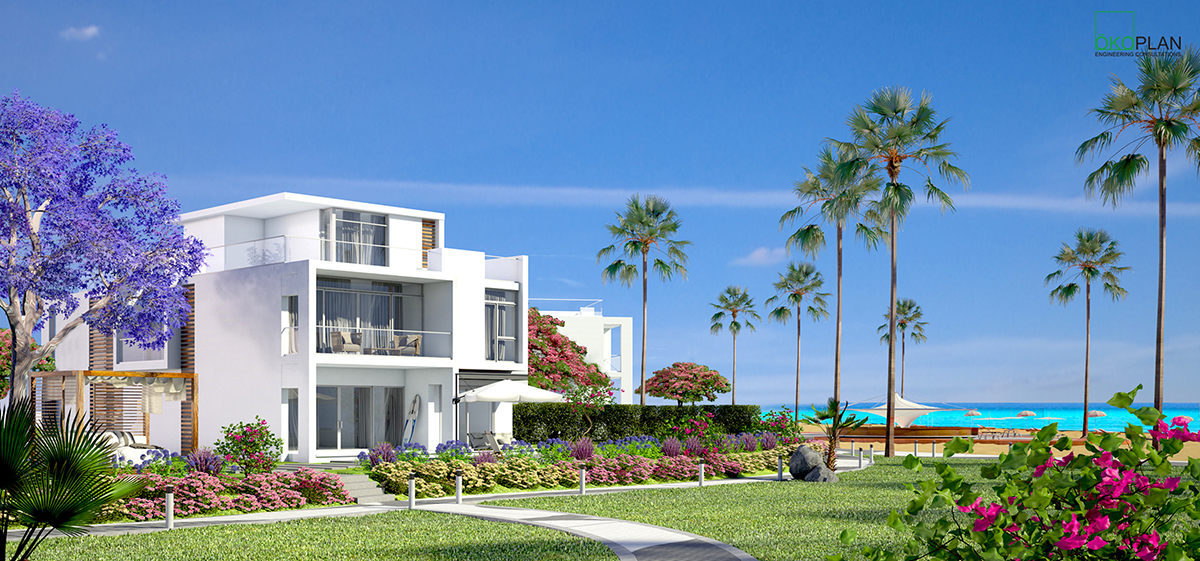
How they see Ökoplan in the future
All four architects believe that the future lies in creating contemporary architecture that brings happiness to the user and is part of the surrounding environment. To them, architecture and urban design are clear from the very first design sketch.
They also highlighted that the process of managing Ökoplan is integrated with the firm’s core business: the practice of architecture and engineering, emphasizing the fact that they work closely with the financial and HR department, creating a strong mutual relationship that allows everyone to achieve success as a team.
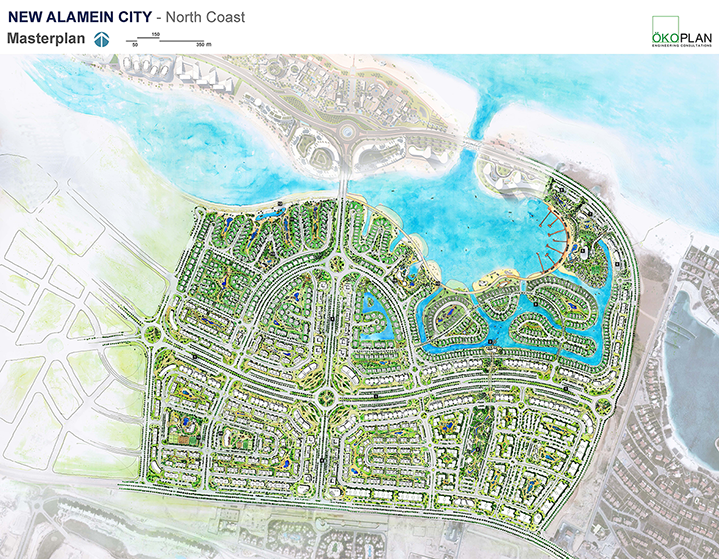
Life experiences and challenges affecting their career
As an associate professor at the Department of Urban Planning, Faculty of Engineering, Ain Shams University, Rowaida highlighted how the practice of architecture affects teaching significantly. “The field exposure gives an extra edge to teaching. It connects academic knowledge with what is currently happening in real life. So, students can get a better understanding of what they could actually find in the market, not just in textbooks.”
A life-changing event for Rowaida was when she pursued her PhD in Austria. Not only was it about her education and her dissertation, but also about experiencing a different culture and seeing different ways of thinking. “As I mentioned earlier, traveling and getting exposed to different cultures affect our work tremendously. I was surrounded by art and architecture in every step, so of course, it was an overwhelming experience.”
Natalie has worked with different architects and participated in different projects since she graduated, which gave her great exposure and experience. “This experience that I’ve gained from different places made me rich! You gain a lot when you get exposed to and work with different architects and in different projects than to stick to one place.”
Natalie has participated in national projects with Ökoplan. Working on such big projects was a turning point in her career. “Participating in national projects is a remarkable opportunity that an architect doesn’t encounter a lot,” she continued.
As for Lamiaa, working at Ökoplan was a major transitional phase on a personal and professional level. “On a personal level, Ökoplan exposed me to different people, so I learned to deal better with different situations. My way of thinking and communication with others have changed,” Lamiaa explained. “And of course, on a professional level, I saw a different career path than what I had in mind. Since a young age, I have been facing challenges, and with each achievement, there was a lesson learned that prepared me to the next challenge, thus, pushed me to the next achievement and so on.”
She then shared with us the development of Ökoplan’s managerial and planning strategies, which partially involved dividing the office into studios. “The company was divided into different studios and each architect—each one of us—became responsible for a studio and took care of it completely from A to Z, which was a big challenge at the beginning.”
Manal agreed to the point above adding that “this big responsibility, where each one of us became entirely responsible of a design studio, starting from clients’ invoices, time schedules, to the responsibility of a whole team, was a major step and key point in my career. We were responsible for the slightest detail, and we were keen on providing the right managerial atmosphere, quality, productivity, and handling all the challenges and downturns from A to Z.”
Talking more about the firm’s responsibilities, the architects mentioned that they managed to work on multiple projects, starting from planning new cities, such as New Cairo City, Badr City, Al-Shorouk City and Al-Obour City, to the urban design and architecture of sports clubs, residential compounds, and office buildings, such as Heliopolis Sporting Club Al-Shorouk, Arabella Country Club, and various resorts along the Mediterranean and the Red Sea, to mention only a few.
At Ökoplan, the partners always brought the most recent and progressive strategies and ways of thinking, so this affected the foundation and management of the business. Throughout the years, Ökoplan was always a few steps ahead of others.
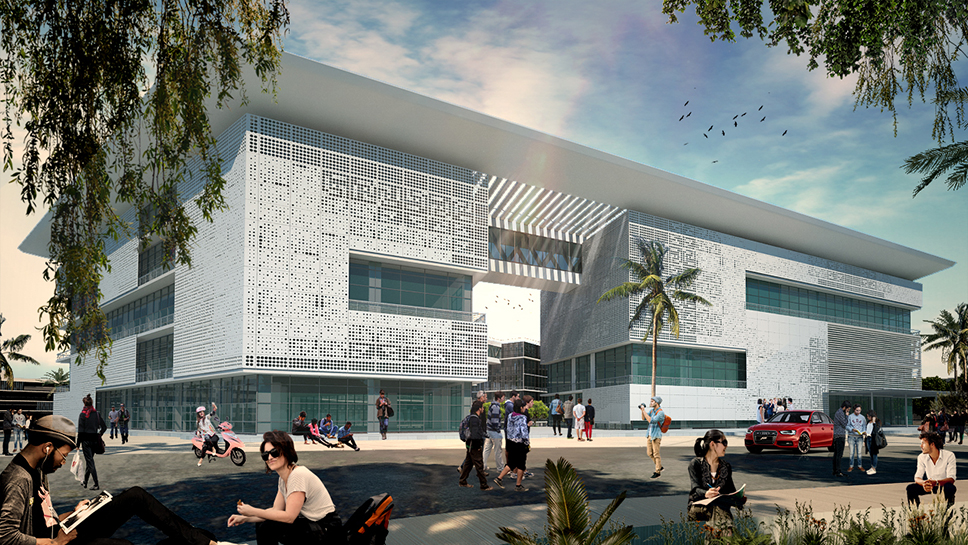
A skill set and different talents that complement each other to generate an exceptional quality of work
“We complete each other. Each one of us has a unique skill, so when we put all our efforts together, we complement each other.”— Manal El-Koussy.
Ökoplan brought skills of management and leadership from Germany all the way to Egypt. The architects agreed that the strategies and skills the founders acquired from Germany and passed to Egypt made them jump steps ahead and excel in the field. They are like a family in the office. They do not speak the language of “titles” and who is ahead of whom. Everyone gives their best and they are very honest about their skills and talents. Even with the younger team members, they support them, pass their knowledge to them, and listen to their ideas and believe in their capabilities. “Everyone does their part to complete the cycle. It is like a rolling machine…we complete each other.”—Natalie added.
Projects and achievements that had a significant impact on their vision and career
With all the knowledge, enthusiasm and inspiration conveyed through the conversation, we were very curious to know about the main projects that changed or impacted the architects’ perceptions.
“Ökoplan has a successful history in planning and urban design. Starting with the planning of New Cairo City in the mid-1990s and the design of Heliopolis Sporting Club in Al-Shorouk City. With our competitive edge in master planning, we had the chance to work on many significant projects inside and outside Cairo;” Rowaida stated, “Stone Park Compound, Telal Al-Alamein, Telal Al-Sokhna and Port Ghalib City in Marsa Alam are some prominent examples. With new ideas that are ongoing to this day, we created significant projects in the Egyptian market on many levels.”
Ökoplan’s scope of work is very diverse; they design residential projects, hotels and resorts, office buildings, educational complexes and sports projects, as well as many other types of projects.
Natalie has found it hard to mention one project only, but she highlighted Al-Alamein District, a project that started in 2017. “It is one of the major projects we are currently working on,” she mentioned. “We are responsible for the master plan and architectural design of a 700-feddan mixed-use district in New Alamein City, part of which is Mazarine Compound, which takes up 98 feddans and offers cheerful living environments along the Mediterranean Sea, including villas, chalets and apartment buildings overlooking a beautiful lake and lush landscaped areas. We are responsible for the full coordination between all disciplines, in addition to site supervision.”
Lamiaa added, “another special project we have been working on since 2016, is Mangroovy Residence developed by Elsewedy in El-Gouna, where we have worked on the architectural design of the residential buildings, as well as the landscape design of the project, which takes up one of the few remaining spots that directly overlook the sea.” The project is almost finished and is partly operating.
Natalie continued, “Ökoplan has an extensive experience in designing educational buildings, including the American University in Cairo (AUC) new campus, covering 250 feddans in New Cairo; Badr University in Egypt, covering 20 feddans and including 12 faculty buildings; the 9-million-sqm Jazan University in Saudi Arabia, together with Isozaki, Aoki & Associates; and currently- as part of 5+UDC- the European University in Egypt, in the New Administrative Capital, extending over an area of 80 feddans; and last but not least, El-Rabwa Schools Complex in Al-Mostakbal City, covering an area of 11 feddans.”
And then, Manal further highlighted Stone Park Compound being one of Ökoplan’s valuable residential projects, covering 460 feddans and comprising villas, as well as apartment buildings (Stone Residence). What distinguishes this project, is the urban design, which is based on creating levels that open the views for all residential units, overlooking beautifully landscaped open spaces. In this project, Ökoplan is responsible for the master planning, architectural design, landscape design, civil and structural engineering, infrastructure networks, MEP, in addition to the coordination between all disciplines up to construction management, and site supervision.
Following up, in 2008, they worked with the same client on Stone Towers Project (part of Stone Park Compound), in collaboration with star architect Zaha Hadid in London. Ökoplan was acting as a local consultant for this significant project, with a built-up area of 1,000,000 sqm, comprising office towers, hotels, and retail. “Stone Towers is a key turning point for Ökoplan. It was one of the critical and main projects,” Lamiaa stated. “Every specialty in London’s team was met by the same specialty in Egypt’s team. And we worked closely together on developing the design.” This collaboration made Ökoplan observe their advancement in management, design, planning and organization, and they could see where they stand on an international level. “Stone Towers project influenced Ökoplan and allowed us to make good contacts and connections. Today, we can easily deal with many international consultants,” Lamiaa continued.
“The firm has also been working with Phase 3 Architecture and Design, from London, on Stone Street mixed-use project (part of Stone Park in New Cairo City): an exclusive complex of offices, retail, hospitality and entertainment developed by Rooya Group,” Manal elaborated.
Ökoplan has many experiences in collaborating with international firms such as WATG, with whom they worked on “Energy Valley” Project in Tripoli, Libya back in 2010. And they also worked with EDSA on several projects, starting with “Port Ghalib City” in Marsa Alam and the “Green River” in the New Administrative Capital.
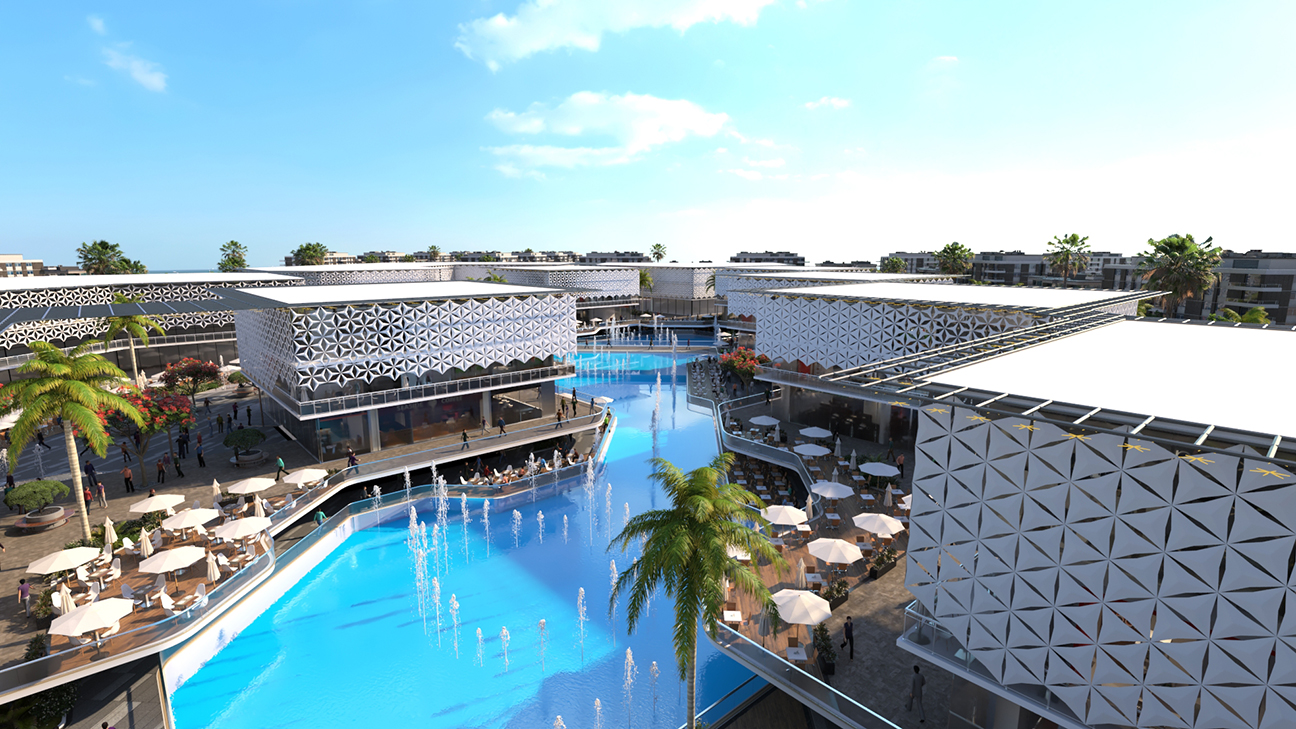
No matter where in the world, architects speak the same language… the language of architecture and design
“Another challenge was how to remain illustrative and reflect the image and values in the slightest details,” Natalie said. “Our language mainly consists of designs and material. So, we constantly have to learn about new technologies and concepts and think of how we can introduce them to Egypt, while finding the right way to apply them here.”
Natalie continued by confirming that they are constantly seeking international exposure for Ökoplan, as they made great connections with international consultants in the US, Great Britain, Germany and China; in addition to the international conferences and fairs that they participate in, such as MIPIM, one of the largest real estate shows in the world, taking place every year in Cannes, France, where they are exposed to international projects on a larger scale and gain knowledge about the latest work and design directions in the international market.
“We always come back with great knowledge to share with the team after any conference,” Manal said. “Those who attend make sure to come back with valuable additions, and organize sessions to present new ideas to the rest of the team: another key to our success and advancement in the field.”
Diverse styles and values traveling all the way from Germany to Egypt
“Not each and every member is super talented in every aspect and detail in the scope of work. It is divided in a way where we complete each other. For example, one could master the strategic part, another is more detail-oriented, and another is a better planner or has better managerial skills and so on. Everyone’s contribution covers different stages. And by the end, it is about collaborative effort, where we focus on being one team. It is all about the value of teamwork.”
The exchange of knowledge and teamwork are basic values that were transferred originally from the German mindset to Egypt.
Rowaida talked about a point that is rarely found in Egyptian firms which is the act of sharing information about a project with external members. Unfortunately, a lot of organizations prohibit the sharing of information, fearing that the ideas get stolen or imitated, or simply because of the discomfort related to the concept of sharing.
“We have no problem sharing information about a project with anyone who’s interested in the project,” Rowaida said. “We have no fear of sharing. On the contrary, we see it as an important thing to do and it reflects our strength and confidence.”
Rowaida continued talking about the directness and straightforward attitude they have gained from the Germans. “Straightforwardness is the shortest path and the most practical, transparent, and pragmatic way to reach a certain point.” She has also added that simplicity and accuracy are two major key points that help them excel.
The words simplicity and accuracy are always used, but does everyone actually apply them?
“Simplicity is not about making something without ornament, but rather about creating something that is complex and visually satisfying using basic elements,” Rowaida said. “All the minimal features in designs are made clear to reflect a certain idea and the very essence of the object. These are a lot of core values that influenced us and are still embedded in us from the German culture.”
Natalie continued by putting emphasis on transparency and clarity. “Any young team member, who joins us can contribute to the work and share their vision. No-one has a ceiling, and everyone can float and have the chance to prove and show their capabilities without restrictions. Anyone who has the needed talent and skills can participate in any project regardless of their age.”
“Yes, one of Ökoplan’s advantages is the flexibility and understanding taking place in the workplace… it is a culture that we have,” Lamiaa said. “We mix the knowledge and experience of the older generation with the talent, enthusiasm and new mindset of the new generation to produce the best possible version of the work at hand. We also make sure to transfer the experience and knowledge to the new generation along the way.”
Manal agreed to her colleagues’ notes, adding: “There are two things that we learnt at Ökoplan, since we joined the team: there is no difference between seniors and juniors; and the young generation must make mistakes, and the seniors’ role is to guide them, support them and help them to grow.”
The four architects talked about Ökoplan’s belief in social responsibility. “A lot of students are interested in internships at Ökoplan, and after they finish their period of training, they return with an interest to work with us after they graduate. This is a great sign of our success.”
Ökoplan receives around 50 students every summer for internships. The students learn a great deal at the office, as if they are already part of the company. The program is designed to make students pass through all the departments and take part in different jobs, so they finish their internship with a broad knowledge about different aspects and skills after a short, yet condensed training period.
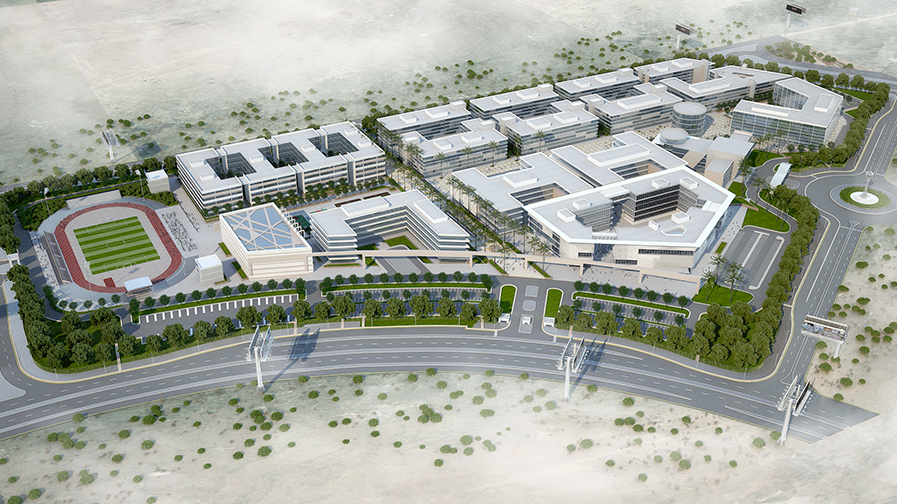
Golden pieces of advice to share with young architects
Last but not least, the four powerful architects have given golden pieces of advice to the new generation that’s passionate about architecture.
“The new generation is more exposed and more open to new ideas. They have all the tools to stay up to date with what is new and to build an open mindset. They need to push themselves in this direction. Another thing they need to understand in order to make achievements is that they have to work hard, get as much experience as possible and keep exploring different areas in the field,” Rowaida said.
Natalie started on a very positive note mentioning that architecture is “the best job ever,” she said enthusiastically.
“There is always a new thing to learn, there is a new challenge every day. So, my advice is that you need to really be passionate about it and love your job in order to keep up with the pace,” she added.
Manal has given a couple of pieces of advice that she thought every young architect should apply. “The first one is to truly understand what design is. You need to understand that the connection between the interior and exterior is very important. Basically, architectural design and landscape design complement one another… you need to be comfortable working on both,” she said.
The second piece of advice was a bit different, but to the point:
“We all used to do freehand sketching, but today, every architect depends on technology. As much as it has a lot of advantages, we cannot deny that it has affected the artistic sense. In Ökoplan, we put a significant emphasis on this. Computers are tools to help us execute our ideas, but they do not create the idea,” Manal said.
“Patience is a trait that they need to acquire,” Lamiaa added. “The fast-paced era the new generation is living in made them want to achieve everything in a blink of an eye... that is not going to happen,” she said.
“True. They must be patient and take the ladder from the beginning and trust the process,” Rowaida finished.
We were pleased to have such an interesting and informative conversation with Ökoplan’s influential figures. They are an inspiring example to many architects, and we are proud to share their journey.
